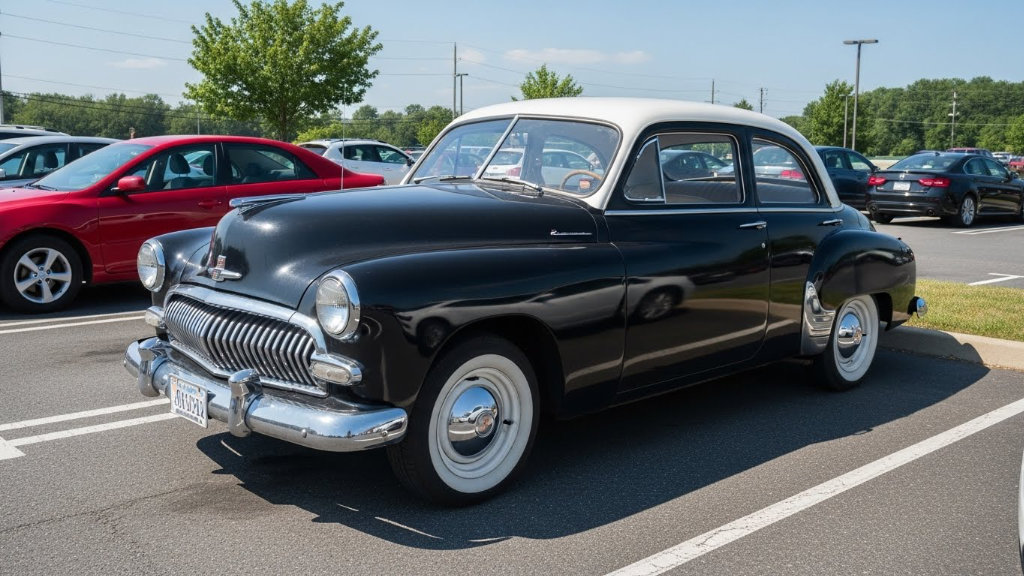When you buy a car, knowing when and where to pay sales tax can save time — and frustration.
Ride Legal makes it simple by breaking down what happens whether you buy from a dealer or a private seller — and how to stay compliant without the DMV chaos.
At Ride Legal, we believe drivers should experience freedom without friction. We’re not just a registration service — we’re your trusted partner in navigating the compliance, financial, and logistical side of vehicle ownership so you can focus on the road ahead.
Dealership Purchases
Who Collects the Sales Tax
When you buy from a licensed dealership, sales tax is typically included in the purchase price.
You’ll see it itemized on your sales contract, and the dealer collects it at the time of sale.
What Happens Next
The dealer then remits the sales tax to your state’s Department of Revenue or equivalent agency.
That means you don’t need to make a separate payment when you visit the DMV — the dealer takes care of that step.
Why This Matters
This setup ensures your sales tax is handled automatically. You won’t risk underpaying, overpaying, or forgetting to pay at all. It’s one less step between you and your new keys.

Private Party Sales
Who Collects the Sales Tax
In a private sale, things work differently. The buyer — not the seller — is responsible for paying the sales tax.
When and How
You’ll pay sales tax when you register and title the vehicle at your local DMV, county clerk, or tax collector’s office.
Bring your bill of sale or purchase agreement to document the vehicle’s selling price.
Why This Matters
Failing to pay sales tax during registration can delay your title, trigger fines, or even prevent you from driving the vehicle on the open road.
State-by-State Differences
Most States
Across the U.S., the system is straightforward:
- Dealership purchases: Dealer collects and submits the tax.
- Private purchases: DMV collects the tax at registration.
Exceptions
Some states, like California, handle things a little differently.
In California, used car dealers submit sales tax directly to the DMV along with the transfer paperwork — streamlining the process even further.
If you’re in Florida, you can learn more about:
- What documents to bring when paying sales tax at the DMV
- How Florida calculates sales tax on trade-ins
- County surtax rates in Florida
- Rules for registering an out-of-state vehicle
Tip: Always Verify Your State’s Rules
Each state has its own process, tax rate, and required documentation. Before you buy or register a vehicle, check with your state DMV or Department of Revenue to confirm:
- What documents you’ll need to bring
- How trade-in credits are calculated
- Whether local or county surtaxes apply
- How out-of-state vehicle registrations are taxed
- If exemptions apply for family transfers or new residents
You can start by reviewing your state’s DMV website through USA.gov’s Motor Vehicle Services Directory.
FAQs About Car Sales Tax
Where do you pay sales tax on a car?
It depends on how you buy your vehicle. If you buy from a dealership, the dealer typically collects the sales tax at the time of purchase and submits it directly to your state’s Department of Revenue. If you buy from a private seller, you’ll need to pay sales tax at your local DMV or tax collector’s office when you register and title the car. Ride Legal can help you determine the right process for your state and make sure the payment is handled correctly.
What is the Arkansas sales tax on cars?
In Arkansas, the state sales tax rate on vehicle purchases is 6.5%, and local cities or counties may charge additional taxes. This applies to both new and used vehicles priced over $4,000, and payment is due when registering the vehicle with the Arkansas Department of Finance and Administration.
Ride Legal helps buyers in Arkansas calculate total taxes, manage paperwork, and complete registration without DMV delays.
What is the sales tax on a car in Alaska?
Alaska is one of the few states with no statewide vehicle sales tax. However, certain municipalities — including Anchorage, Juneau, and Ketchikan — may charge local taxes between 1% and 3%.
Before finalizing your purchase, it’s best to check with your local tax office or have Ride Legal confirm if your area collects additional vehicle tax.
This ensures you avoid unexpected fees and stay compliant.
How is sales tax calculated on a car in Florida?
In Florida, the state sales tax rate is 6%, applied to the vehicle’s total purchase price.
Additionally, most counties charge a discretionary surtax ranging from 0.5% to 2.5%, depending on the county.
For example:
- Buying a $30,000 car in a county with a 1% surtax equals a total tax of $2,100 ($1,800 state + $300 county).
Florida also allows deductions for trade-ins and credits for out-of-state purchases, lowering your total tax burden.
You can verify current surtax rates and guidelines through the Florida Department of Revenue.
If you’re unsure how to calculate your rate, Ride Legal provides expert, state-specific tax breakdowns before you register your vehicle.
Ready to Get Started with Ride Legal?
If you’re buying from a dealer, they almost always handle the sales tax for you.
If you’re buying from a private seller, you’ll pay it yourself when registering the vehicle.
But no matter where or how you buy, Ride Legal is here to simplify the process — from understanding state rules to getting your vehicle registered the right way.
Drive with confidence. Ride with purpose. Get started with Ride Legal today.



